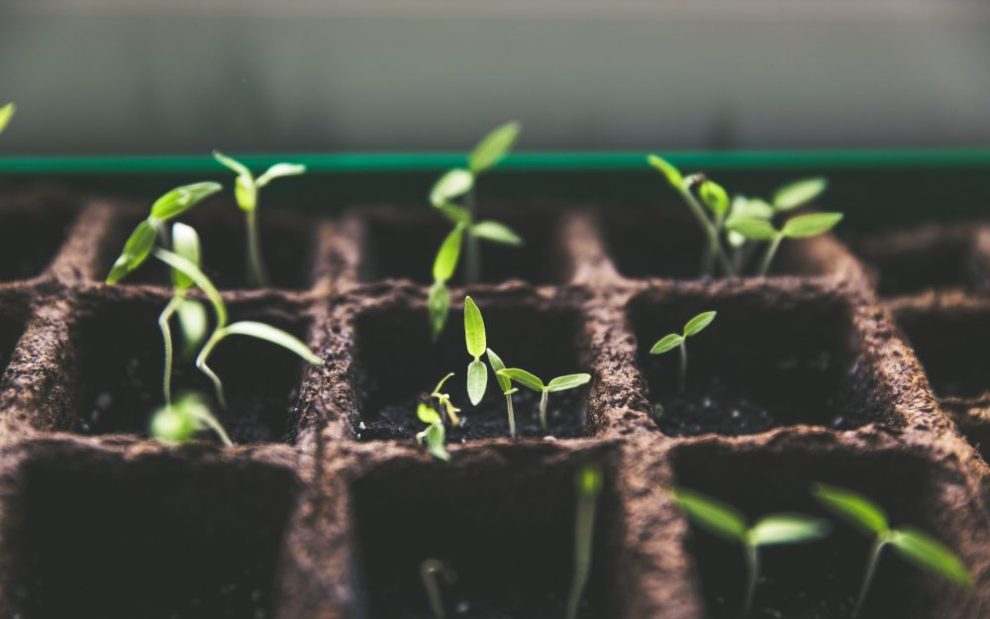Back in my days as a college pagan hedonist, I returned to my University of Washington dorm from Thanksgiving dinner with my parents having contracted a ruinous case of food poisoning, probably from our homemade sauerkraut.
I stumbled into my room and pitched forward onto my bed, there to lie motionless while the hours ticked by. At length, the phone rang, and it turned out to be somebody calling from 2nd floor Lander Hall, the dorm building next to mine. I was a bit wary of the folks on that floor because it was the Christian floor, full of born-again types and Jesus praisers while I was, well, not one of these types.
I mumbled something about my fervent wish for the sweet release that only death can bring and then politely bowed out of whatever social event I was being invited to by my friend. Then I hung up and resumed my sufferings.
About 10 minutes later, there was a knock at my door. Shirtless and with the creases in my pillow printed firmly onto my face, I heaved my bulk to the door, only to be surprised by the presence of Sandy, a woman from 2nd floor Lander I did not know from Eve (we would become friends after this), standing there with a kind smile on her face.
“I heard you were sick! I brought you this,” she said cheerily and brandished a bottle of Pepto-Bismol that she had run out and bought for me for no other reason than simple kindness.
I was moved by that act of kindness from a total stranger. I still am to this very day. No, I was not converted to her faith in Christ on the spot. But it was one of the moments in which the millions of rounds of God’s mercy pierced my defensive armor and I started to think about Christians as something besides people whose eyes were set just a little too close together. Pepto-Bismol remains for me a sacramental of the love of God. There would be many other such moments, as there are for all of us. But that one sticks out in my memory as a turning point in my life—a sort of breadcrumb leading other breadcrumbs—that would eventually lead me to the bread of life.
I mention it here because it seems to me that we Catholics could do with a reminder of just how potent and powerful our small acts of kindness, incarnate in the material world, can be.
Physicists tell us that a huge amount of the universe is something called “dark matter.” I’m not a physicist and can’t speak to that, but I do think that the mystery of dark matter—something nobody has ever seen that seems to be everywhere anyway—is an apt image of the grace of God at work in the world. That minute in November 1978 was, in the history of the cosmos, something that went completely unobserved by all seven billion of Earth’s inhabitants—except for me. It never made a single newspaper or TV broadcast. As an event in world history, it passed completely by the consciousness of all of our best and brightest and had absolutely no effect on the economy, Soviet/American tensions, the military-industrial complex, or any other standard index of what really matters according to all expert opinion. It spawned no film franchises, resulted in no bestselling books, and generated not one gold record power ballad.
But, for me, it was one of the first moments in my life that I encountered—in a way I was dimly conscious of—the love of God.
I add the caveat about “being conscious” because, of course, we are all encountering the love of God every nanosecond of our lives. Grace holds every single atom in the universe in being at all times. If God wanted the world to end, God would not have to do anything: God would have to stop doing something. Creation is God’s very present act everywhere and at all times, and we can’t help but encounter it.
And yet, we are so often oblivious to that reality. We can be as unaware of it as we are of the reality of dark matter. So in a million tiny ways throughout human history, in a sort of echo of the incarnation, the dark matter of grace comes to us not in some huge, theatrical display of earthquake, wind, and fire, but in what scripture describes as a “still small voice” (1 Kings 19:12). God is made present to us in small, hidden ways that are visible only to us, unnoticed by the world, and made present by small acts of kindness such as bottles of Pepto-Bismol or a grandmother’s rosary, or birdsong on a summer morning or starlight on a winter night, or a father’s hand on our shoulder, or the smell of a car that takes us back to conversation we had with a friend that suddenly takes on new profundity after 20 years.
This incarnational pattern seems to be woven into the way of things. God is omnipresent, but seldom seems to reveal Godself through omnipresence. God seems to insist on focusing the broad daylight of divine being to a pinpoint. As C.S. Lewis says, “The world which would not know Him as present everywhere was saved by His becoming local.”
So creation is made by the Creator to be filled with billions of local encounters with quiet, hidden, “dark matter” grace. This is what it means to be a co-laborer with Christ in the world. Every time we offer our hands and voice in prayer, or some physical gift or act in love to our neighbor (not in order to “buy” a response but simply because it is good and right and kind and loving), we are sprinkling water on the earth by the power of the Holy Spirit to give life to the soil. And though we cannot know which of these tiny droplets of mercy we help rain on another person’s life will reach the seeds God secretly plants in their hearts, still we have the promise of God that somehow that rain will find its way nonetheless:
For as the rain and the snow come down from heaven,
and do not return there but water the earth,
making it bring forth and sprout,
giving seed to the sower and bread to the eater,
so shall my word be that goes forth from my mouth;
it shall not return to me empty,
but it shall accomplish that which I intend,
and prosper in the thing for which I sent it. (Isaiah 55:10-11)
We cannot, of course, control or predict how or whether the seeds of life will sprout in the way we might think or hope (nor should we so much as think to try). Our task is to obey God in love, not control God or anybody else. But as the apostles discovered, obedience in love—even attempted obedience—is rewarded in astonishing ways, and the grace that germinates in darkness breaks the soil and comes to light.
Image: Unsplash/Marcus Spiske














Add comment